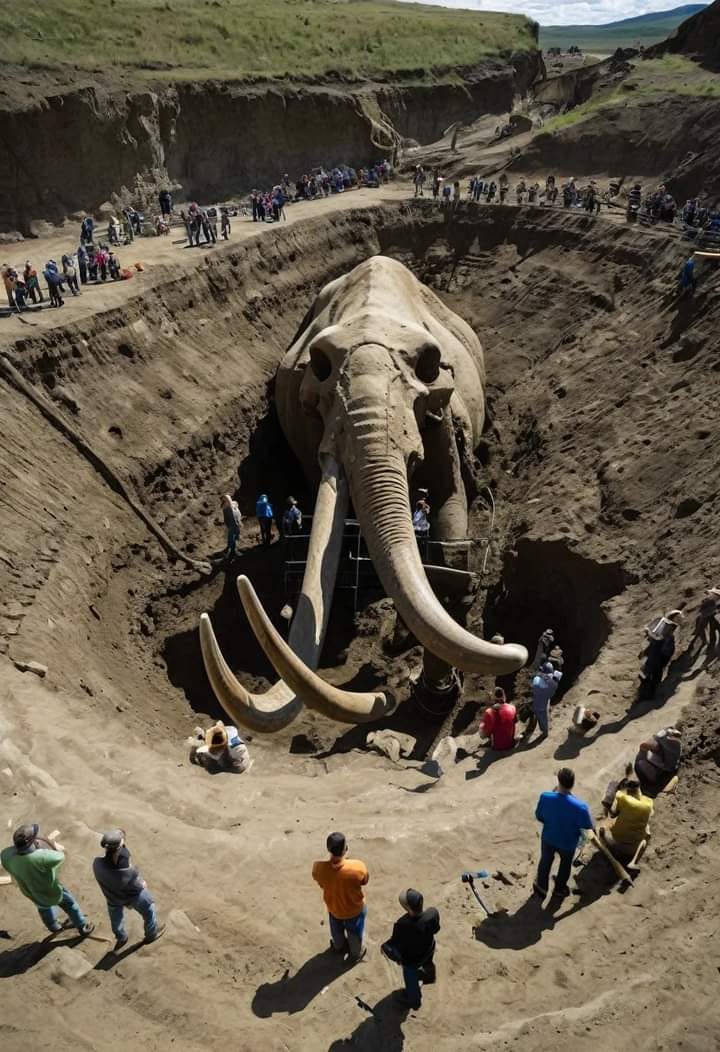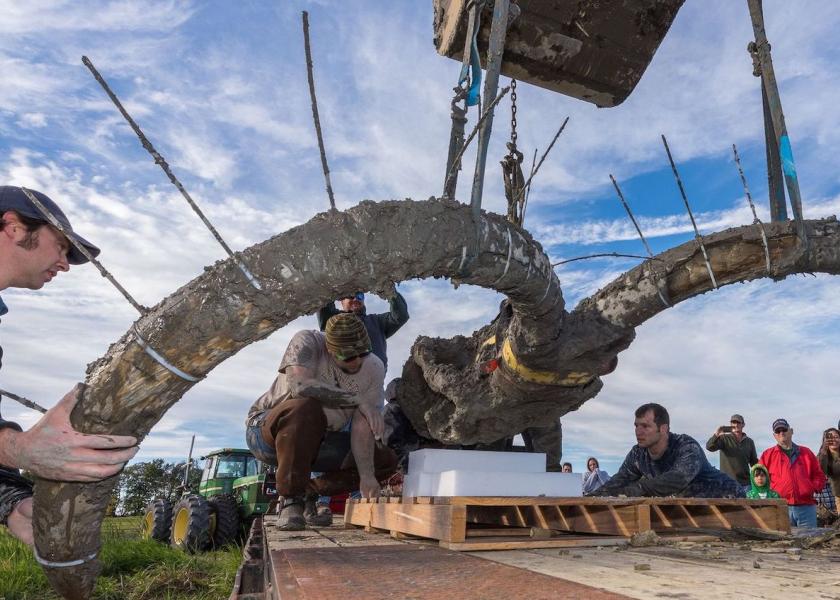In a remarkable discovery, a fossil of a woolly mammoth dating back approximately six million years has been unearthed on the property of a Michigan farmer. This finding has sparked immense interest among archaeologists and enthusiasts alike, shedding new light on the prehistoric landscape of the region.

The remarkable find occurred when the farmer, while tending to his fields, stumbled upon what appeared to be a large bone protruding from the earth. Intrigued by his discovery, he contacted local authorities, leading to a thorough excavation of the site.
Upon closer inspection, experts confirmed that the bone indeed belonged to a woolly mammoth, a species that roamed the Earth during the Pleistocene epoch. The mammoth, known for its iconic shaggy coat and formidable tusks, once inhabited vast regions of North America, Europe, and Asia.

The significance of this discovery cannot be overstated. It provides valuable insights into the ancient ecosystems of Michigan and the surrounding areas, offering clues about the climate, vegetation, and animal life of the distant past. Furthermore, it underscores the importance of preserving and protecting our natural heritage for future generations.
This remarkable find has captured the imagination of people worldwide, drawing attention to the rich history of our planet and the mysteries that lie beneath its surface. It serves as a poignant reminder of the wonders waiting to be uncovered and the enduring fascination with the creatures that once roamed the Earth.
As researchers continue to study the fossil and its surroundings, there is no doubt that more revelations will come to light, deepening our understanding of the world that existed millions of years ago. In the meantime, the woolly mammoth fossil stands as a testament to the power of curiosity and the enduring allure of the past.






